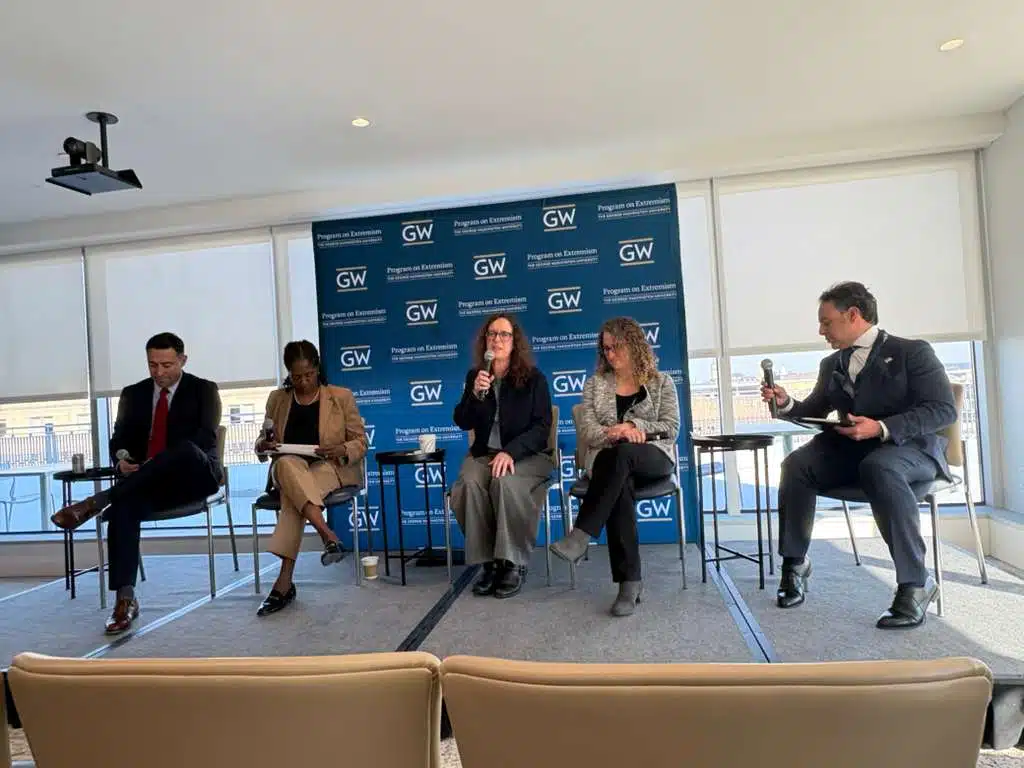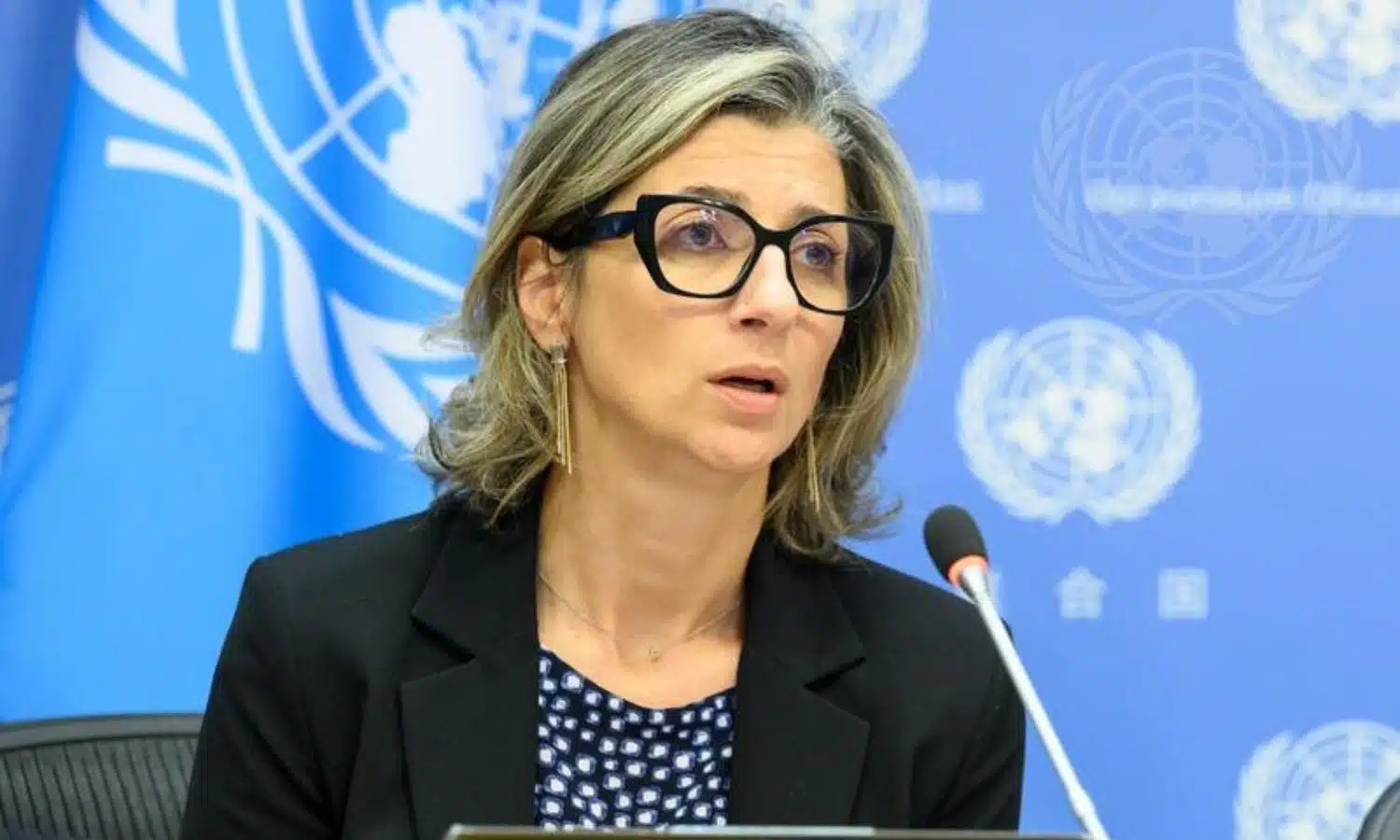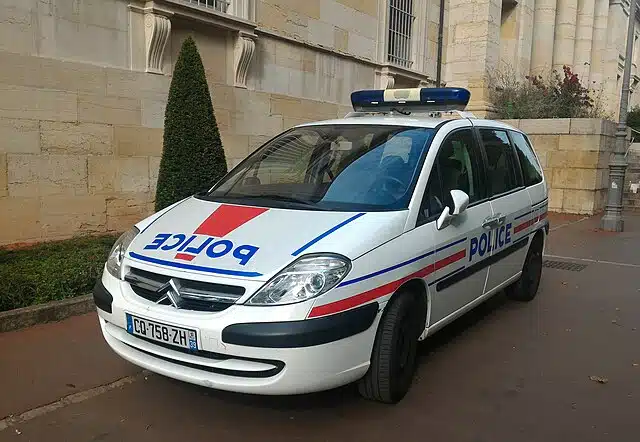

‘We Must Collectively Amplify Our Demand for Justice’: Berlin Jews Set to Rally Against Rising Antisemitism
This coming Sunday, July 25th, a demonstration will be held in Berlin to protest rising Jew-hatred in the German capital’s Neukölln borough.
The recent global antisemitism surge saw numerous displays of bigoted antisemitic hatred in Neukölln, prompting members of the local Jewish community to take action.
The “Jewish Life Is Not a Provocation” protest — organized by the newly-formed Neukölln Alliance Against Antisemitism and co-sponsored by the Combat Antisemitism Movement (CAM) — will take place at 5 PM CEST in front of Neukölln’s city hall.
This comes only two weeks after 3,000 people attended the “No Fear: A Rally in Solidarity With the Jewish People” in Washington, D.C.
Ahead of Sunday’s rally, CAM spoke with organizer Jonathan Guggenberger about the event and the general issue of antisemitism in Germany as a whole.
What motivated you to organizer this rally now?
“On May 15, there were several Nakba Day protests in my neighborhood, Neukölln. Two of my friends passing by one of those protests got attacked by a mob of 50 people because they were recognized as Jews, due to a Magen David necklace and Hebrew tattoos.”
“That is just one of many examples of attacks and antisemitic incidents that occurred during the last Gaza conflict. In my eyes, the police did not react as they should have. In addition, the German public is still indignant to openly address and effectively fight forms of antisemitism that do not fit one’s own political agenda. That’s why we want to specifically speak about Islamic antisemitism and anti-Zionism, and also make sure that the threat to Jewish life in Germany is taken seriously, particularly by policymakers. There are two elections in September.”
What is the current antisemitism situation in Germany? Do Jews feel safe to walk the streets there as identifiable Jews?
“Like in most parts of Europe, antisemitism has been on the rise in Germany for many years now. There are certain areas and times where and when it is highly risky to publicly display your Jewishness without getting attacked or harassed. I think this got worse during the last couple of months, with antisemites feeling safe to take their blatant Jew-hatred to the streets and physically assault Jews, excusing their actions as being solely motivated by criticism of Israel. You hear this all the time, and it puts a lot of pressure on Jews and others who stand publicly in solidarity with Israel.”
“We must also address the violent threat posed by right-wing extremists, organized in parties, groups, and networks, also with the police, military, and legislative bodies. But there has long been public awareness of this and authorities and policymakers denounce it, at least publicly.”
“While traces of that extremism still creep up in German society, another issue is the more hidden discomfort toward Jewish life, regarding proud public displays of Judaism and, most of all, shows of support for Israel. I think this discomfort indicates that Germany is still not a place where Jews can live without concern over potential antisemitic outrages.”
How responsive is the German government, at all levels, to the concerns of the country’s Jewish community? Is enough being done to secure Jewish communities and foster Jewish life?
“As we mention in our political program, we appreciate the steps taken by the federal, state, and local governments to support Jewish communities. But it is not enough. Imagine, it took a terrorist attack like the one in Halle in 2019 to get the police standing in front of every synagogue. And even now, that might be true in the larger communities, but not the smaller ones. That needs to change.”
“Additionally, the federal government allocated an extra 22 million euros to secure Jewish sites after the attack, but just once. We are asking for another 25 million euros in annual federal funding. For a wealthy nation like Germany, whose economic strength is built on on two imperial wars and the Holocaust, this is not a large sum of money, if it is taking its approach to Erinnerungskultur ‘Culture of Remembrance’ seriously.”
“It always has been easy to talk about the threat of antisemitism, now the policymakers need to put their money where their mouths are. There is a huge need for educational work — both in the school system and civil society — to be funded. Also, since 2018 commissioners dedicated to fighting antisemitism have been appointed. But their range of action is quite limited, largely to representational functions and public appearances, because of missing financial tools to garner more political impact. We want this to be addressed as well.”
What do you hope Sunday’s rally achieves?
“We want the public to see that Jews and their allies will not stand down, neither in Germany in general nor in Berlin-Neukölln in particular. We want to motivate the Jewish communities of Berlin to claim their rights. That’s why we came up with our concrete political demands. We want them to be realized by the policymakers we invited to speak, and we want those demands to be on their programs as they run for office in September.”
“Furthermore, we want the general public to finally recognize and critically address Islamic antisemitism and anti-Zionism as real threats that need to be confronted in the political arena and everyday life. We really have to act on that to uphold and guarantee the democratic rights and values that Germany has promised to every Jewish citizen.”
What can people around the world do to support and show solidarity with Germany’s Jewish community?
“As we all realize, antisemitism is a global phenomenon, and we need to build up international networks of support and solidarity. To put an end to Jew-hatred around the world, we need to connect local initiatives, interests, resources, and flows of information. We must collectively amplify our demand for justice.”
“That’s why I coordinated with the #EndJewHatred campaign to call for a Global Day of Action on July 25th. At the same time we are rallying in Berlin-Neukölln, we want people all over the world to publicly display Jewish symbols on the streets, as well as online,using the #EndJewHatredBerlin hashtag. Activists are getting organized to hold local rallies in front of German embassies and consulates worldwide, where shofars will be blown to show support for Berlin Jews. Let’s demonstrate that Jews across the globe have the right to be and show who they are — proud Jews.”








